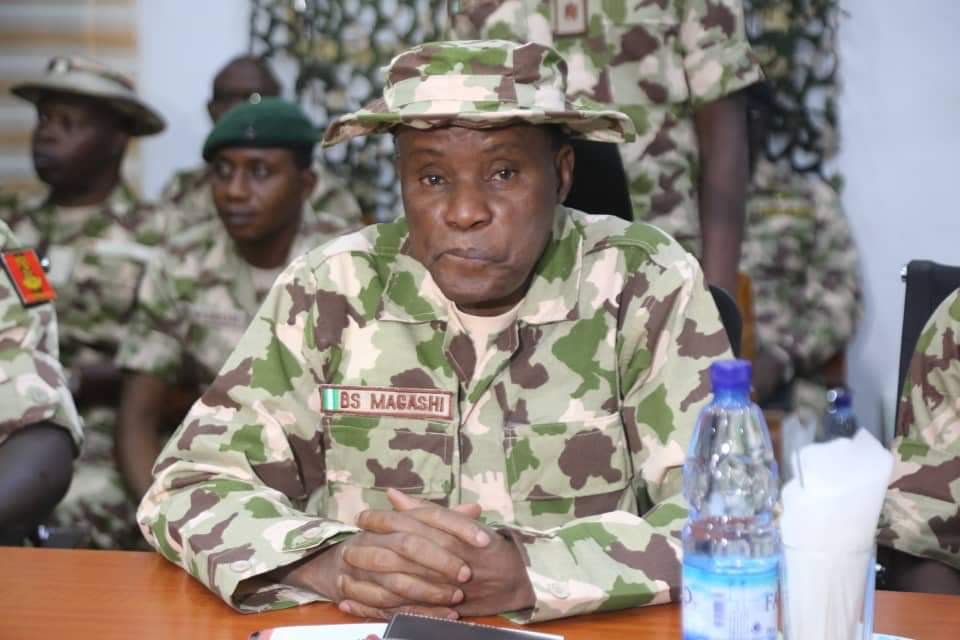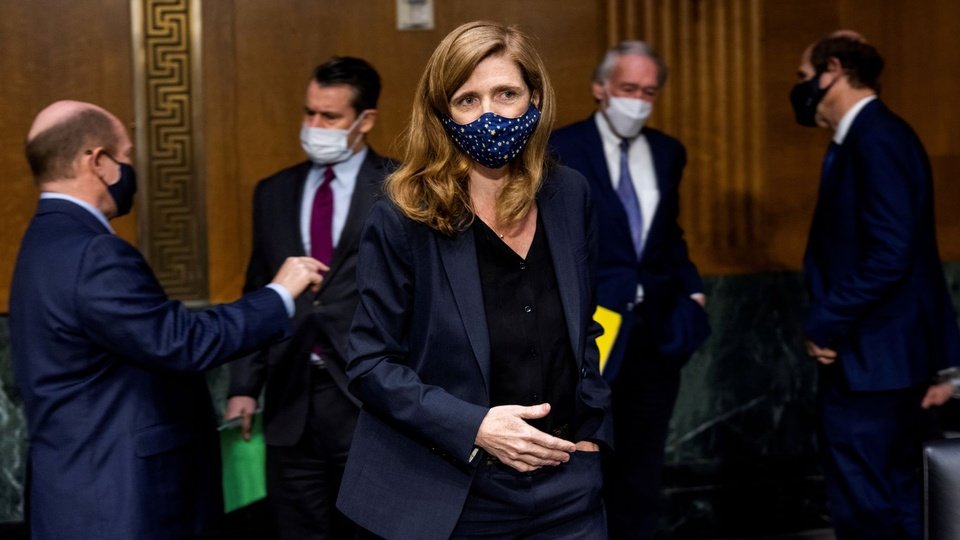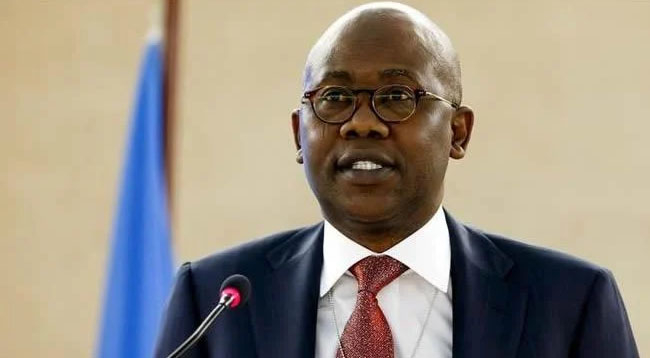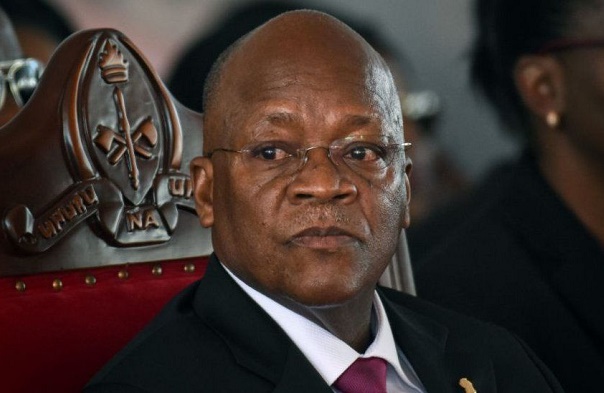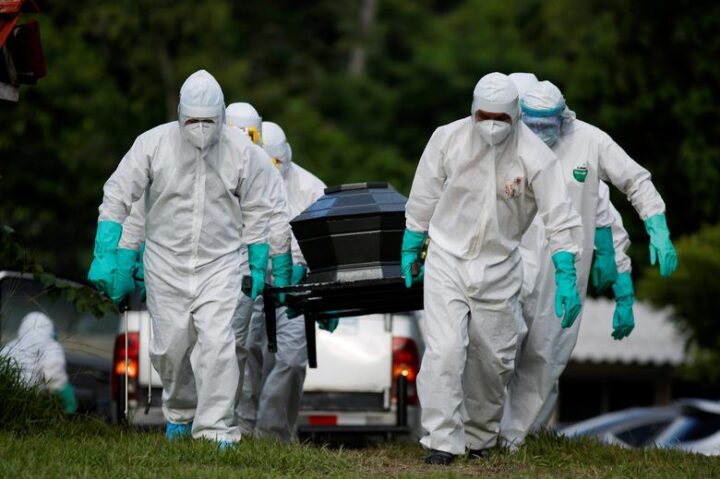Even more than his ineffectiveness, the minister of defence, major general Bashir Magashi (retd’s) recent utterances give reasons for concern. Four weeks ago, he asked Nigerians to defend themselves against the attacks of bandits. I do not know how to describe the weight of irresponsibility these utterances bear, but it is worthy of a ponder.
For a man saddled with the overall responsibility of providing counsel to the President and coordinating the nation’s disparate security apparatus, the defence minister speaks at the highest level of government. His word is more or less law on this front. So, when he says things like this, he suggests that the government is no longer able to protect the people; he spreads fear. More than that, suggestions like that call for anarchy, push the rule of law to the background, promote self-help and create a jungle where might becomes right. It precipitates the very opposite of the type of society the minister was appointed to assure.
Again, on Tuesday, Magashi hit the news when he said that Nigeria’s security was in a critical state. Of course, he wasn’t saying anything new, but as possibly the only person that is accountable to Nigerians on the issues of security after President Muhammadu Buhari, what is expected of him is building confidence rather than mongering fear. And coming just four weeks after he made another comment that drew criticisms from Nigerians, the comment raises questions about whether his alarming remarks are a function of the lack of understanding of the remit of his office, incapacity to communicate appropriately or an attempt to pass a veiled message of government’s helplessness. Thank goodness that from that same event, chief of defence staff, General Lucky Irabor, served notice of the armed forces’ determination to quench every fire of violence and disaffection being lit across the country.
That the minister made the above comment in his bid to covet the cooperation of Nigerians in the war against insecurity is not also lost on this writer. The point, however, is that a man of his office must be circumspect in his choice of words when saying anything with the remote chance of getting consumed by the general public. The job of a defence minister is much more about building confidence in the ability of the government to protect. It is more about strategy than talking, more about intelligence than dishing threats of war on even those perceived to be fomenting trouble. The foregoing is one area where he has failed to prove his mettle. That failure has unwittingly created the Sunday Igbohos and reawakened the rabble-rousing of the Asari Dokubos and Nnamdi Kanus of this world.
Advertisement
One of the wrongs this country’s security apparatus has done allowing the wound of insecurity to fester to the extent that it has become a pervasive national problem. Enough has been said about how the government’s docility aided Boko Haram to become the hydra-headed monster it now is. Yet, Nigeria learnt nothing from that! There was a time when the problem of criminal Fulani herdsmen was restricted to a few states in the North-West and North-Central. Then, the government lived in denial until it became an entrenched evil across the country.
Rather than tackle the challenge head-on like an emerging national threat, efforts were concentrated on arguing whether those who attacked farms, murdered their owners after raping their wives and setting communities on fire were Fulani or not. A serious country treats crime and criminals dispassionately, but Nigerians create different ingredients of the same crime, depending on which part of the country the alleged criminals are from. So, criminals get more emboldened and their boldness encourages otherwise lily-livered people to join the trade, creating all sorts of opportunistic crimes that have turned our country into a harvest of deaths, abductions and all sorts of crime.
We moved from arguing about what part of Nigeria these criminals came from to suggesting that they were aliens taking advantage of our porous borders. Now, we are unwitting victims of our prejudices. Question is, why did it take the intelligence agencies so long to realise this fact?
As bad as it, it is better when those who seem to make excuses for crime and criminals are ordinary citizens. When government is perceived, even if wrongly so, to condone criminals, it is unmitigated trouble for society. This is the impression that the government has allowed Nigerians to go on. Over the years, arguments have been made by Nigerians as to the fact that not one herdsman has been arrested and prosecuted for kidnapping in spite of all the bravado of the security forces. Government allowed this narrative to develop a life of its own. It created resentment across the country, diminished trust in government and caused the emergence of all sorts of opportunistic, self-appointed advocates for the rights of all those perceived to be oppressed.
Advertisement
Another example of such seeming uneven handling of matters is the proscription of bodies like the Indigenous People of Biafra and the Islamic Movement of Nigeria, yet no word has been spoken about the Fulani National Movement, which owned up to attempting to assassinate Benue state governor, Samuel Ortom, on Sunday. FUNAM did not only claim to have made that attempt, it also threatened that the lives of so many other Nigerians who may be have been speaking against the interest of its members were at risk! Security chiefs have not seen the need to advise the President to clamp down on FUNAM, even if just to give Nigerians a false sense of balance.
This column has repeatedly raised concerns about the effect of suppressing dissent in the past. In “Shiite crisis: Nigeria is playing with fire,” published on November 1, 2018, I had written: “…Nigeria will be the bigger loser at the end of the day… what is more frightening is the IMN’s tendency to go underground and start a guerrilla warfare before long. This was pretty much the trajectory of the Jama’atuAhlis Sunna Lidda’awatiwal-Jihad before it became the Boko Haram group. A group to which Nigeria has lost at least 20,000 lives, with two million displaced and an estimated five million facing severe food shortages. How much of this type of internal strife a country can bear is best left to imagination.” So, how come ordinary human beings see these things ahead, but those appointed and paid to protect the country could not and can still not?
There is so much talk about applying “kinetic” measures to quell the disaffections that are already leading to secessionist sentiments. While that is okay, we should ask how much these actions have helped since we embarked on them against Boko Haram over one decade back. Haven’t we continued to see an extension of these tendencies in spite of the billions that have been expended on warfare and military operations across the country?
Reflecting on this should persuade managers of the country’s security to pay much more emphasis on the so-called non-kinetic. This should include rebuilding the confidence of people in their country, ensuring that every part of the country gets its due, that every Nigerian has a sense of citizenship and that the grinding poverty in the country is passionately dealt with.
Advertisement
We should also start to worry about the future. With the level of miseducation and no education at all that Nigerian children currently experience, the current level of insecurity would be nothing compared to what is to come unless we invest in today’s children and youth.
Nigerian leaders, at the federal, state and local government levels, must come together, shun party differences and plan for sustainable and quality formal, informal and vocational education of every child depending on their talent. Just as the employment of youths must be a priority.
Magashi and those who work with him must realise, in case they don’t, that advising the president about sustainable peace and security of Nigeria include all of these and the decorum not to speak out of turn. They should spend quality time on creating defence policy directions that will take the country out of the doldrums rather than painting a state of anomie that spreads fear.
Adedokun tweets @niranadedokun
Advertisement
Views expressed by contributors are strictly personal and not of TheCable.
Add a comment

